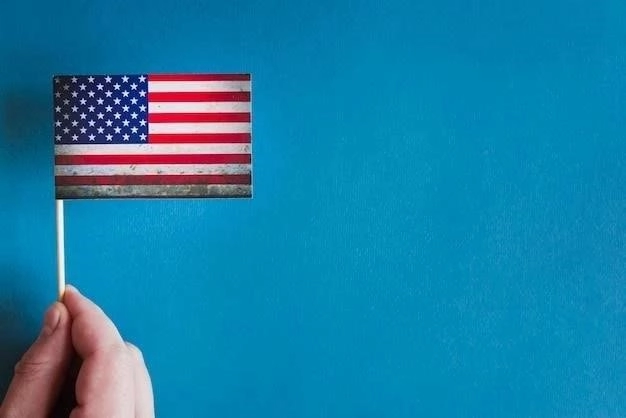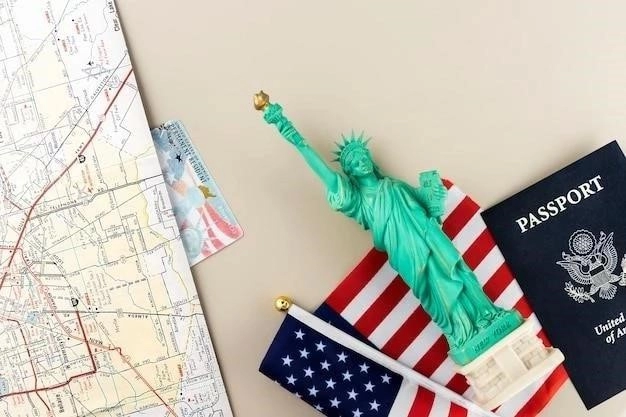The United States and Africa: A Complex Relationship
The relationship between the United States and Africa is multifaceted and marked by a long history, intertwined with periods of cooperation, competition, and evolving interests. From the legacy of the Cold War and historical trade ties to contemporary geopolitical shifts and economic partnerships, the dynamics of this relationship continue to be reshaped in the 21st century.

Historical Context of US-Africa Relations
The historical tapestry of US-Africa relations is woven with threads of both collaboration and conflict. Early interactions were tragically shaped by the transatlantic slave trade, a dark chapter that continues to cast a long shadow. Following the abolition of slavery in the United States, engagement with Africa remained limited until the dawn of the 20th century. The onset of the Cold War marked a turning point, as the United States and the Soviet Union vied for influence across the African continent. Many newly independent African nations found themselves caught in the crosscurrents of this ideological struggle.
The United States provided economic and military aid to countries aligned with the West, often prioritizing strategic interests over democratic principles. This period saw the US supporting governments with questionable human rights records in the name of containing Soviet expansion. The end of the Cold War ushered in a new era, characterized by a shift towards democratic promotion and economic liberalization in Africa. The United States played a role in supporting democratic transitions and promoting free market reforms. However, engagement remained inconsistent, often driven by specific crises or geopolitical calculations rather than a comprehensive and sustained approach.
Economic Ties: Trade, Investment, and Development
Economic engagement between the United States and Africa has evolved significantly, transitioning from aid-centric models to a greater emphasis on trade, investment, and sustainable development. While historical trade relations primarily focused on the extraction of raw materials, recent decades have witnessed a gradual diversification of trade relationships. The African Growth and Opportunity Act (AGOA), enacted in 2000, has been instrumental in expanding duty-free access to the US market for eligible African countries.
This preferential trade agreement has spurred growth in sectors such as textiles, apparel, and manufactured goods. Alongside trade, US foreign direct investment in Africa has also increased, targeting sectors like telecommunications, energy, and banking. American companies recognize the vast economic potential of the continent, with its burgeoning consumer markets and a youthful, growing population. However, challenges persist in terms of infrastructure gaps, bureaucratic hurdles, and a need for greater investment in human capital to fully unlock the potential of economic partnerships.
Geopolitical Interests and Strategic Competition

The African continent has become an arena of intensifying geopolitical competition, with the United States facing challenges from both traditional rivals and rising powers. China, in particular, has emerged as a major player in Africa, wielding significant economic clout through infrastructure investments, trade agreements, and development assistance. This has prompted concerns in Washington about China’s growing influence and its implications for US interests. Russia, too, has been actively reasserting its presence in Africa, forging security partnerships, and engaging in resource extraction ventures.
The confluence of these geopolitical shifts has prompted the United States to reassess its strategic posture in Africa. While economic engagement remains crucial, there is a renewed focus on security cooperation, particularly in countering terrorism, promoting regional stability, and stemming the tide of authoritarianism. The Biden administration has emphasized the importance of strengthening partnerships with African nations that share democratic values and a commitment to good governance. However, navigating this complex geopolitical landscape requires a nuanced and calibrated approach, recognizing the agency and diverse interests of African nations.
Security Cooperation: Counterterrorism and Peacekeeping

Security cooperation stands as a prominent pillar within the framework of US-Africa relations. The United States has been actively engaged in efforts to combat terrorism and support peacekeeping initiatives across the continent. The rise of extremist groups, such as al-Shabaab in Somalia and Boko Haram in the Lake Chad Basin, poses a significant threat to regional stability and has prompted a concerted response from the international community. The US has provided training, equipment, and intelligence sharing to bolster the capacity of African partner nations in their fight against terrorism.
Furthermore, the United States has been a longstanding supporter of United Nations peacekeeping operations in Africa, contributing both financially and through the deployment of personnel. US engagement in peacekeeping missions, such as those in the Democratic Republic of Congo and Mali, highlights its commitment to conflict resolution, civilian protection, and the restoration of stability in conflict-ridden regions. However, the effectiveness of US security cooperation in Africa has been a subject of ongoing debate, with critics pointing to the need for a more nuanced approach that prioritizes human rights and avoids entanglement in local conflicts.
The Role of China and Other Global Players

The evolving dynamics of US-Africa relations are inextricably intertwined with the rising influence of China and other global players on the African continent. China, in particular, has emerged as a formidable economic force, investing heavily in infrastructure development, resource extraction, and trade partnerships. This surge in Chinese engagement has prompted both interest and concern in Washington, as the US navigates this shifting geopolitical landscape. Some analysts view China’s growing footprint as a challenge to US primacy, while others argue that it presents opportunities for collaboration on issues of mutual interest, such as economic development and security.

Beyond China, other global actors, including Russia, India, Turkey, and the European Union, are also expanding their engagement with Africa, seeking to strengthen economic ties, secure access to resources, and enhance their geopolitical influence. This multifaceted engagement underscores the growing significance of Africa in global affairs and presents both opportunities and challenges for the United States. As the global competition for influence in Africa intensifies, it is imperative for the US to adopt a nuanced and proactive approach that prioritizes mutually beneficial partnerships and recognizes the agency of African nations in shaping their own destinies.
The US-Africa Leaders Summit and its Implications
The US-Africa Leaders Summit, held periodically, stands as a significant platform for high-level dialogue and engagement between the United States and African heads of state. The most recent summit, hosted by President Biden in Washington, D.C. in December 2022, aimed to reset and revitalize US-Africa relations following a period of perceived neglect during the previous administration. The summit yielded a series of commitments and initiatives across various sectors, including trade and investment, development assistance, health security, and climate change mitigation.
President Biden pledged to deepen economic ties with Africa, promoting sustainable and inclusive growth, and supporting African-led initiatives. The summit also witnessed a renewed emphasis on shared democratic values, with the United States expressing support for democratic governance, human rights, and the rule of law in Africa. However, the long-term implications of the summit remain to be seen, as concrete actions and sustained engagement will be crucial to translate commitments into tangible outcomes. The summit’s success will ultimately hinge on the ability of the United States to forge genuine partnerships based on mutual respect, shared interests, and a recognition of Africa’s growing agency on the global stage.
Human Rights, Democracy, and Governance

The promotion of human rights, democratic principles, and good governance has been a recurring theme in US policy towards Africa. The United States has often emphasized the importance of democratic values, advocating for free and fair elections, respect for human rights, and accountability in government. US assistance programs have sought to support democratic institutions, strengthen civil society organizations, and promote the rule of law across the continent. However, the US approach to human rights and democracy in Africa has at times been criticized for inconsistency and selectivity.
During the Cold War, the US often prioritized strategic interests over human rights concerns, supporting authoritarian regimes deemed vital to containing Soviet influence. While the post-Cold War era witnessed a shift towards democracy promotion, critics argue that US engagement has remained uneven, often influenced by security concerns or economic interests. Striking a balance between promoting democratic values and pursuing strategic objectives remains an ongoing challenge for US policy in Africa. The US must navigate this complex terrain with sensitivity, recognizing the diversity of political contexts and the importance of supporting African-led initiatives for democratic progress.
Cultural Exchanges and People-to-People Diplomacy
Beyond governmental relations, cultural exchanges and people-to-people diplomacy form a vibrant and vital thread in the tapestry of US-Africa relations. These interactions foster mutual understanding, break down stereotypes, and forge lasting bonds between the people of both continents. Educational exchanges, such as the Fulbright Program and various university partnerships, provide opportunities for students and scholars to pursue academic endeavors and immerse themselves in different cultures.
Artistic collaborations, ranging from music and dance performances to film festivals and visual arts exhibitions, showcase the richness and diversity of both African and American cultural expressions. Furthermore, sporting events, particularly basketball and soccer, attract large and enthusiastic audiences, fostering a sense of camaraderie and shared passion. These diverse forms of cultural exchange transcend political differences, fostering goodwill, and nurturing a deeper appreciation for the shared humanity that connects the United States and Africa.
Challenges and Opportunities in the 21st Century
As the United States and Africa navigate the complexities of the 21st century, their relationship faces a myriad of challenges and opportunities. The rise of China as a major economic and geopolitical force in Africa presents both competitive pressures and potential avenues for collaboration. The US must articulate a clear and compelling vision for its engagement with Africa, one that transcends a narrow focus on countering China and emphasizes mutual benefit and shared interests.
Climate change poses an existential threat to both continents, demanding collaborative solutions and technological innovation. The US can leverage its expertise and resources to support African countries in mitigating the impacts of climate change and transitioning to clean energy sources. Furthermore, promoting sustainable and inclusive economic growth in Africa remains paramount. The US should prioritize investments that create jobs, foster entrepreneurship, and empower marginalized communities.
The Future of US-Africa Relations: Towards a More Balanced Partnership
Looking ahead, the future of US-Africa relations hinges on the ability of both sides to forge a more balanced and mutually beneficial partnership. The traditional donor-recipient dynamic must evolve into a relationship characterized by mutual respect, shared responsibility, and a recognition of Africa’s agency and aspirations. The United States should engage with African nations as equal partners, listening attentively to their priorities and supporting their development goals.
Trade and investment, rather than aid, should serve as the cornerstone of economic engagement, fostering sustainable growth and creating opportunities for both American and African businesses and workers. Collaboration in areas such as climate change mitigation, health security, and technological innovation holds immense potential for mutual benefit. Moreover, the US should leverage the dynamism and talent of the African diaspora, fostering stronger people-to-people ties and tapping into the diaspora’s valuable insights and connections. Building a truly reciprocal and enduring partnership will require sustained commitment, open dialogue, and a willingness to adapt to the evolving realities of the 21st century.
Policy Recommendations for the Biden Administration
To effectively navigate the complexities of US-Africa relations, the Biden administration should consider the following policy recommendations. First, elevate diplomacy and engagement with Africa by appointing high-level officials with the experience and stature to foster closer ties with African leaders and institutions. Second, prioritize trade and investment over aid by expanding initiatives like AGOA, promoting private sector partnerships, and supporting African-led development projects.

Third, deepen security cooperation through joint training exercises, intelligence sharing, and capacity building initiatives focused on counterterrorism, peacekeeping, and maritime security. Fourth, prioritize climate action by supporting African countries in adapting to climate change impacts, transitioning to renewable energy sources, and participating in global climate negotiations. Fifth, strengthen democratic institutions and promote good governance by supporting free and fair elections, upholding human rights, and combating corruption. By adopting a comprehensive and forward-looking approach grounded in mutual respect and shared interests, the Biden administration can forge a more productive and enduring partnership with Africa.










